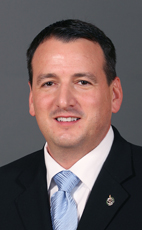![]() THUNDER BAY – Politics is communication. Does proper communication of a political message matter? It certainly does. That statement was proven fact this week in the United States where Republican Mitt Romney lost the election. Some of the reasoning behind that was in poor communications. Romney’s message on Jeep for example was refuted by the company, and likely led to his defeat in a key battleground state.
THUNDER BAY – Politics is communication. Does proper communication of a political message matter? It certainly does. That statement was proven fact this week in the United States where Republican Mitt Romney lost the election. Some of the reasoning behind that was in poor communications. Romney’s message on Jeep for example was refuted by the company, and likely led to his defeat in a key battleground state.
There are Canadian comparisons right here in Northwestern Ontario. The federal Conservatives, across Northwestern Ontario are likely to find that their communications on the Environmental Lakes Area is overall, a failure. That failure is likely to resonate greatly with opponents of the Conservative Party. Worse yet for the Conservatives, the general approach of overall silence will send Conservative supporters the message to ‘stand down’.
 Likely it is going to impact Kenora MP Greg Rickford. Rickford and the Conservatives have, for the most part been ‘silent sam’ when it comes to explaining their reasons to close down the ELA. Their reasoning is that the research could be better done by others. Or at least that is what it sort of sounds like.
Likely it is going to impact Kenora MP Greg Rickford. Rickford and the Conservatives have, for the most part been ‘silent sam’ when it comes to explaining their reasons to close down the ELA. Their reasoning is that the research could be better done by others. Or at least that is what it sort of sounds like.
By not communicating fully and clearly, the Conservatives have opened themselves up to a ‘perfect storm’ of critical commentary on the Internet. Rickford is one of the most quiet of Members of Parliament in Northern Ontario, when it comes to engaging in the new world of electronic communications. The Kenora MP ignores social media, and does not offer columns to local media in the region. Of interest, on Facebook, there is a Greg Rickford page, it has 106 likes. Yet the Kenora MP is not a part of it.
In the federal riding of Kenora, the Conservatives raised $36,106.88 from 136 contributors in 2011. There are no figures filed with Elections Canada for 2010. (Source: Elections Canada). Those amounts are far larger than the contributions made to either the Liberals or the New Democrats. Provincially, NDP MPP Sarah Campbell raised $30,055.67 almost the same as Rickford as a note of comparison.
Conservative Rickford won the election in 2011 with a larger margin of votes than in the 2008 election. The Conservatives appear to have, with the 47% winning margin in 2011 a strong hold on the riding. There was a sixty percent voter turnout in 2011 which represented a five percent increase from the previous election.
It may sound strange, but with that margin of victory, it comes at a price. That price is greater reach of communications to voters. It also places the Kenora MP in the position of being the senior voice for Northern Ontario within the Conservative Party.
If the Conservatives are content in holding Kenora, then their strategy might appear sound. If the goal is expanding the Conservative voice into other ridings, then likely Rickford and the Conservatives have yielded the field to the New Democrats in Kenora and across the North. John Rafferty, Sarah Campbell and Charlie Angus from the New Democrats have reached out via the Internet to showcase their party positions in a demonstration of modern communications skills that the Conservatives have yet to seemingly grasp.
Does it matter? In Northwestern Ontario the Internet is a growing tool used by residents for communications. In Kenora alone there are 10,140 Facebook accounts, in Dryden there are 6,160 accounts, and in Red Lake there are 2,320. In Thunder Bay there are 72,400 Facebook accounts at last count.
The use of new technologies for communications is growing. Groups are increasingly finding that using online means of communication of their message is important. Coming late to the table is likely far better than not coming to the table at all.
In the longer term, politics is about communication. Only time will tell if the federal Conservatives in Northern Ontario grasp the opportunities presented to them by the growing technological advances.
James Murray

